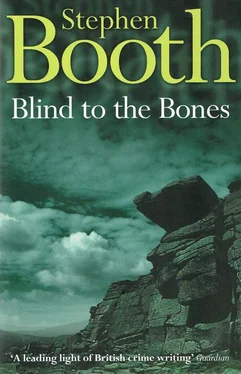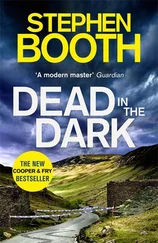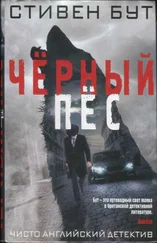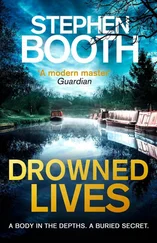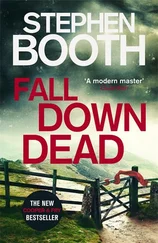Humming quietly to himself, he went back to the reports. It was then that he noticed the Oxleys had an Anti-Social Behaviour Order in force against them.
‘For goodness’ sake. No wonder Lucas Oxley made such a point of saying he wouldn’t tolerate his lads getting in trouble.’
Cooper looked up guiltily, hoping no one in the office had heard him. He didn’t even have the cat for an excuse.
An ASBO made a difference. Persistent juvenile offenders were a thorny problem for the police. Experienced defendants knew to plead ‘not guilty’ to charges every single time. They had learned that it meant their case would have to go to a crown court trial and a jury verdict. Well, you have to try your luck, they would say. Then they would make up a story to explain their actions — any story at all, it didn’t really matter. Often, they put up no defence at all, but left it to their defence lawyer to pick holes in the prosecution case and expose any procedural flaws that could be found.
Some defenders had become expert at getting an acquittal on a technicality, picking at the threads of the procedural detail, so that even the most damning evidence of guilt might never be considered by the court. Police officers had learned that the most important thing in their lives was to follow correct procedure, if they were ever going to get a conviction. The fully documented chain of evidence, the properly executed search warrant, the interview conducted to the letter of the rule book — those were the only real strengths they could call on, under the scrutiny of a court. Justice, truth, and the suffering of victims were insignificant side issues.
And even time could be against them. The defence might find ways of delaying a case so long that witnesses forgot what they had seen, or changed their minds, or decided it might be more sensible, after all, not to appear in court.
But an Anti-Social Behaviour Order could be taken out in civil proceedings, which meant the same burden of proof wasn’t needed. Just the number of complaints from neighbours could be enough for the council to obtain an ASBO, which obliged the family involved to refrain from anti-social behaviour for a specific period — in this case, five years. But the sting in the tail was that, although an ASBO was a civil action, breaking one was a criminal offence and could mean a jail sentence.
Of course, the threat posed by an ASBO might also mean that people would go to greater lengths to conceal offences.
Cooper thought about Lucas Oxley. He seemed like a man genuinely passionate about keeping his family in line, but also obsessive about preserving their privacy. What lengths would Lucas go to if he thought one of his family had stepped over that line?
Also in the heap of paper on his desk, Cooper found copies of the conviction records for the Oxleys and began to thumb through them. He saw that three years previously, Scott Oxley had been convicted of criminal damage, and given probation. No surprise there. But he had been charged jointly with Craig Alan Oxley, aged sixteen.
‘Who’s Craig?’ said Cooper.
Then there was another conviction. Two years ago, for taking a vehicle without the owner’s consent, Scott had been sentenced to fifty hours community service. He was charged jointly with Craig Alan Oxley, aged seventeen.
‘Craig? There isn’t a Craig.’
Cooper scanned the rest of the records. He wondered if that was how most of the Oxleys spent their time — doing community service instead of working for a living.
‘But the point is, who’s Craig?’
Was he a middle brother? A cousin? Cooper searched for a separate record for Craig Alan Oxley. His address was given as 5 Waterloo Terrace, Withens. That was Fran Oxley’s house.
If only the Oxleys were on the electoral roll, it would help a lot. But the Oxleys probably believed that if they were on the electoral roll, all sorts of people would come looking for them, to make them pay Council Tax and income tax.
And Fran’s husband — what was his name? Barry Cully, that was it. But he wasn’t her husband. Fran had told him that Barry was an electrician and was away working in Saudi Arabia at the moment. So Craig could be living at Fran’s house.
But then Cooper turned to the last page of Craig Oxley’s court records. No, he wasn’t living in Fran’s house. He was in Lancashire. For his last offence he had been sent to the Young Offenders’ Institution at Hindley.
Cooper thought about trying to obtain school records for the Oxleys. Of course, he wasn’t even certain that they were all Lucas’s children. But one thing he felt sure of — for the Oxley boys, school would mean social isolation. Only at home in Withens were they among their own kind.
DI Hitchens put his head round the door of the CID room and called Cooper away from his reports. Cooper had already stopped humming after reading about the ASBO and Craig Oxley. But this wasn’t a good sign, either.
‘We’ve pulled in one of Neil Granger’s associates, by the name of David Senior,’ said Hitchens. ‘He seems to have the closest links to Granger, and he was actually seen near his house on Friday night, a few hours before Granger was killed.’
‘Are we interviewing him, sir?’
‘No, he’s stewing in his own juices at the moment, waiting for the duty solicitor. But interestingly, we had a call from Granger’s brother, who wants to talk to us.’
‘You think he has some information on this Senior?’
‘It seems likely. I’m scenting a breakthrough. You met Philip Granger, didn’t you, Ben?’
‘Yes, sir.’
‘Let’s go and see what he has to say, then.’
Philip Granger was looking a bit better than last time Cooper saw him. The initial shock had perhaps worn off now, and some more useful information might well be coming back to him. This was a strange time for relatives, following a suspicious death. Until someone was charged with murder, or twenty-eight days had passed, Neil Granger’s body wouldn’t be released for a funeral, so his brother might have to wait a month or so yet before he could start to put the whole business behind him.
‘I heard that you’ve arrested David Senior,’ he said.
‘No. At the moment, he’s helping us voluntarily,’ said Hitchens.
Granger nodded. ‘Right. But I think there might be something you haven’t realized.’
‘What’s that, sir?’
‘Neil was gay.’
Hitchens shrugged. ‘So?’
Granger looked surprised at the DI’s reaction and didn’t seem to know what else to say for a moment. Cooper felt surprised, too, but concentrated on not giving it away in his expression.
‘Neil didn’t make any big deal of it,’ said Granger. ‘But he did get the piss taken out of him by some of our cousins. That’s one reason he was keen to move out of Withens, you see. I thought it might make a difference — Neil being gay, I mean.’
‘It doesn’t make any difference to us, sir,’ said Hitchens. ‘These days we aim to treat everyone fairly, regardless of ethnic origin, religious belief, gender or sexual orientation.’
‘Oh.’
It might have been the first time that Philip Granger had heard the words, but they were familiar to Cooper. In fact, he was fairly sure they were on a noticeboard somewhere in the station under the heading ‘Statement of Purpose’.
‘I mean, the time has long since passed when the fact that your brother was gay would lead to us making any assumptions about his lifestyle or his associates,’ said Hitchens.
‘I see.’ Granger looked almost disappointed. ‘I thought I was helping.’
‘Unless you’re suggesting this has some direct relevance to the enquiry into your brother’s death?’
‘Well, I’m not sure,’ said Granger. ‘It’s just that David Senior... well, I don’t know what connection you think he has to Neil. But they were... they had a relationship.’
Читать дальше
Конец ознакомительного отрывка
Купить книгу
